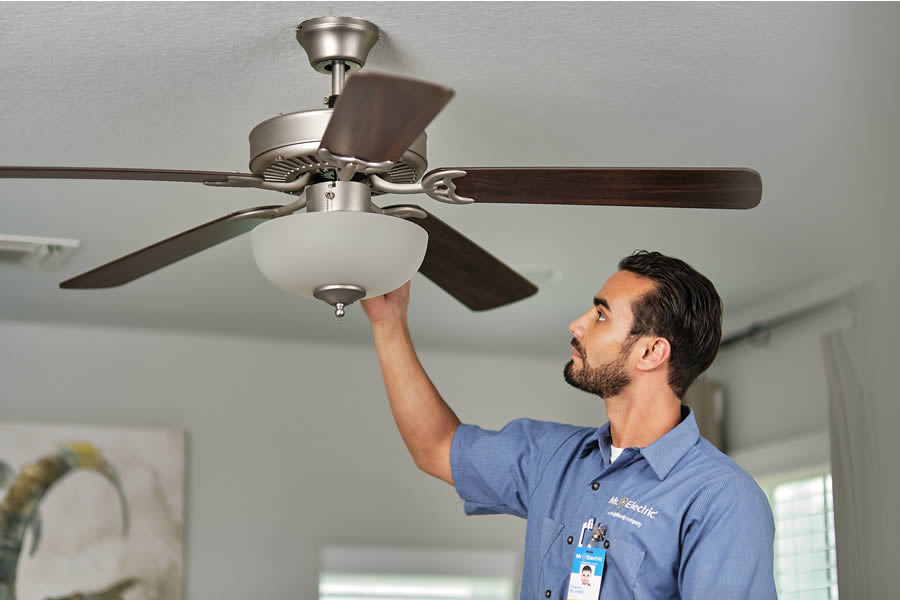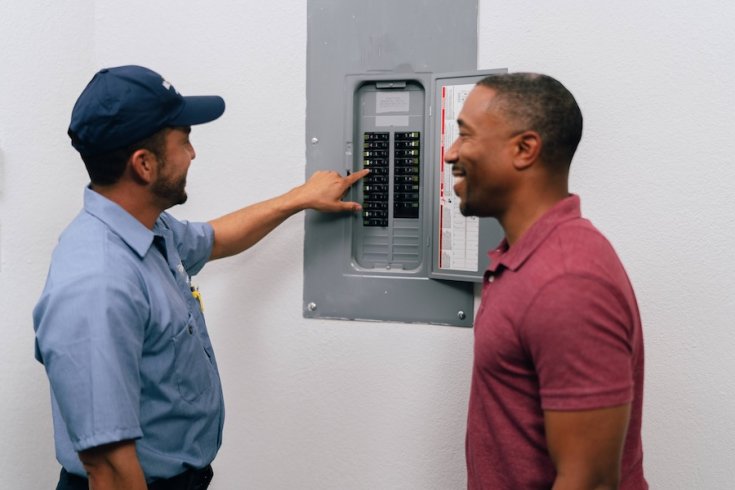How To Use Your Ceiling Fan Efficiently
Ceiling fans are often prized for their aesthetic appeal and ability to provide comfort throughout the seasons. However, their role in enhancing energy efficiency is a lesser known but significant aspect. When used correctly, ceiling fans can contribute to substantial energy savings in both residential and commercial spaces. In this article brought to you by Mr. Electric, we will explore the method behind the madness of maximizing the energy efficiency of ceiling fans.
Remember, a faulty or outdated ceiling fan can be more than inefficient – it can pose serious risk to safety. If your ceiling fan is wobbly, flickering, or making unusual noise, then have it inspected by a certified electrician. The electricians at Mr. Electric offer repairs as well as ceiling fan replacement services.
The Basics of How a Ceiling Fan Works
When we think of optimizing the ceiling fan, there are three basic aspects to control: whether it is turned on, how fast it runs, and in which direction it operates.
Running a ceiling fan in an empty room is not only wasteful but also counterproductive. Fans create a wind-chill effect, making occupants feel cooler even if the room temperature remains constant. Turn off ceiling fans when you leave a room to conserve energy and avoid unnecessary cooling.
The speed at which your ceiling fan operates plays a crucial role in its efficiency. During warmer months, use a higher setting to create a cooling breeze. In the winter, set the fan to a low speed to promote gentle air circulation without causing a noticeable breeze.
Speaking of seasons: Ceiling fans come equipped with a reversible motor, allowing you to change the direction of the blades. In the summer, set your fan to rotate counterclockwise to create a cool breeze. In the winter, switch to a clockwise rotation to gently circulate warm air, redistributing it from the ceiling to the floor.
Wintertime Suggestions
As mentioned earlier, many ceiling fans are adjustable. As temperatures drop, switch the fan's blade rotation to clockwise. This forces warm air near the ceiling down to the living space, reducing the workload on heating systems.
It’s important to remember that ceiling fans are not replacements but rather supplements for heating and cooling. Use them strategically to supplement heating systems, ensuring that warm air is evenly distributed throughout the room. This can lead to more uniform temperatures and decreased reliance on heating appliances.
More specifically, run ceiling fans at a low speed during the winter. This helps maintain a consistent temperature from floor to ceiling, preventing the need for excessive heating and reducing energy consumption.
Ceiling Fan Tips During the Summer
Ceiling fans are great in the summer but use them mindfully! Rather than running ceiling fans throughout the entire house, focus on occupied rooms. This targeted approach ensures that you enjoy the benefits of the fan without unnecessarily increasing energy usage in unoccupied spaces.
After all, ceiling fans employ the chill effect by wicking off sweat and heat from our skin. This allows you to set the thermostat a few degrees higher without sacrificing comfort, ultimately reducing energy consumption.
Fans Not Working? Call Mr. Electric.
If you need reliable electrical repair service, then call Mr. Electric. Our trained professionals have you covered with everything from an affordable exhaust fan repair to a complete replacement. Call Mr. Electric to speak with a member of our team today.







